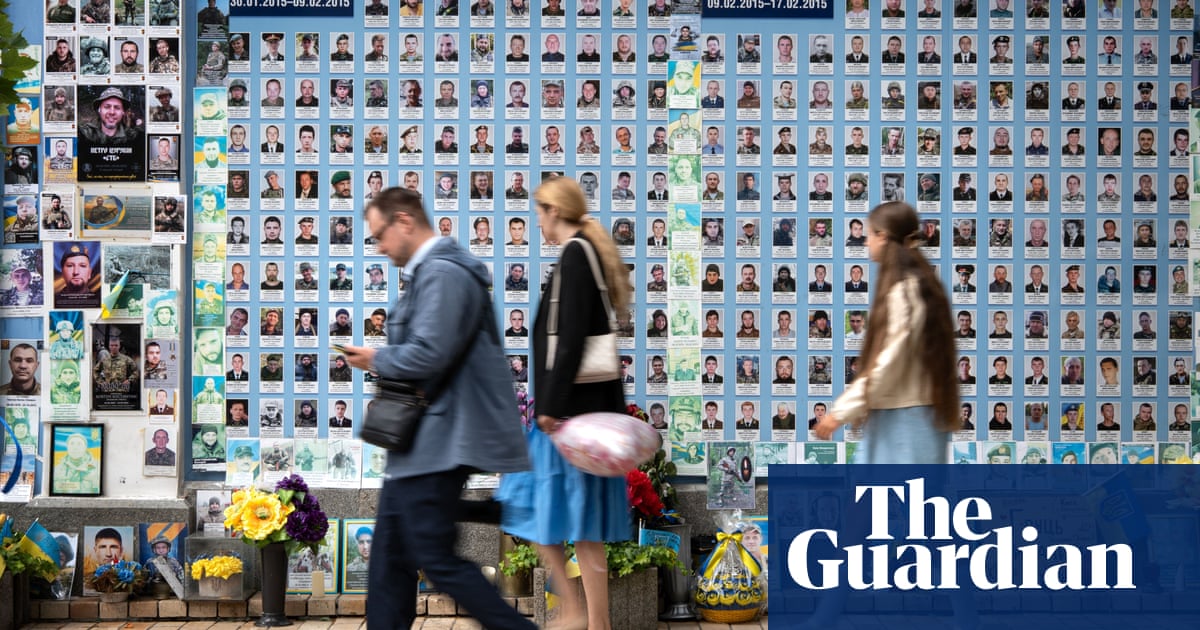Ukraine's Strategic Shift: Military Commander Pledges Intensified Offensives Against Russia

In a bold declaration of strategic intent, Ukraine's top military commander, Oleksandr Syrsky, has vowed to escalate the "scale and depth" of military operations against Russia. This announcement comes amid reports of another massive drone assault on Kyiv, underscoring the relentless nature of the conflict that has gripped the region for over three years. As the Ukrainian capital braces under the weight of these attacks, the resolve to counteract Russian advances is palpable.
The recent surge in hostilities highlights a significant shift in Ukraine's military posture. Syrsky's commitment to proactive engagement rather than passive defense marks a pivotal moment in the ongoing conflict. "We will not just sit in defence," Syrsky asserted, emphasizing the need for offensive measures to prevent further territorial and human losses. This strategic recalibration is a response to the stalled diplomatic efforts, with no new negotiations on the horizon since the last direct talks nearly three weeks ago.
Despite the challenges, Ukraine's military is not without its own tactical advantages. Syrsky revealed that Ukrainian forces control approximately 90 square kilometers in Russia's Kursk region, a strategic foothold that serves as a preemptive measure against potential Russian offensives. This control, although limited, signifies Ukraine's determination to assert its presence and counteract Russian military maneuvers.
The human cost of this protracted conflict is staggering. According to the British Ministry of Defence, Russia's military casualties have surpassed one million since the full-scale invasion began in February 2022. The toll is evident not only in the statistics but also in the societal impact, with a surge in the funeral industry and the visible presence of veterans bearing the scars of war.
Meanwhile, the geopolitical dimensions of the conflict continue to evolve. Ukraine's endorsement of US and Israeli strikes on Iran reflects its broader strategic alliances and concerns over nuclear proliferation. The Ukrainian foreign ministry's statement underscores the perceived threat of Iran's nuclear ambitions, aligning with international efforts to curb potential regional destabilization.
As the conflict enters a new phase, the international community watches closely. The implications of Ukraine's intensified military strategy are profound, potentially reshaping the dynamics of the war and influencing future diplomatic engagements. The resilience and adaptability of Ukraine's military leadership remain critical as the nation navigates this tumultuous period.
🔮 Fortellr Predicts
Confidence: 78%
The situation in Ukraine is poised for a significant intensification of military activities, aligning with historical parallels where conflict escalation marked a strategic pivot towards offensive operations. As Ukraine's military commander vows to broaden the scale and depth of attacks on Russia, this initiative aims to undermine Russian advancements, reclaim lost territories, and shift the strategic balance. In the coming weeks, we can anticipate a step-up in the deployment of Ukrainian forces, supported by continued technological and tactical evolutions, especially in drone warfare, where Russia currently holds an advantage. Ukraine is likely to leverage international support, albeit limited by the current geopolitical climate capped by ongoing diplomatic stalemates. Russian responses might involve retaliatory measures designed to counter the Ukrainian offensives, likely escalating in contested areas such as the Donetsk region. The humanitarian impact could be severe, with intensified fighting exacerbating civilian casualties and displacement. Additionally, the risk of miscalculation or accidental escalation increases as both sides seek to capitalize on military gains without resorting to nuclear options, despite lingering threats from Russian leadership. Diplomatically, the continued inactivity signals a persistent trajectory of conflict that may only be altered by significant geopolitical shifts or pressures from global powers.